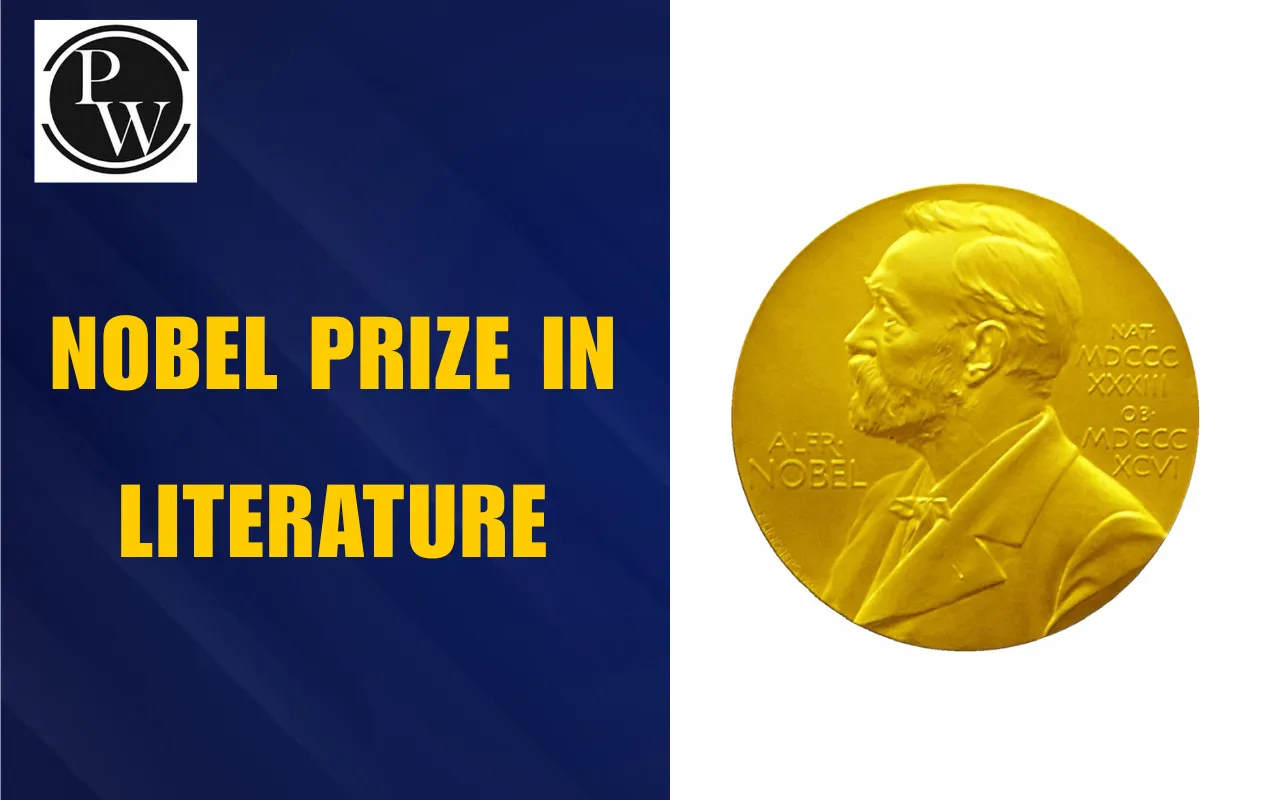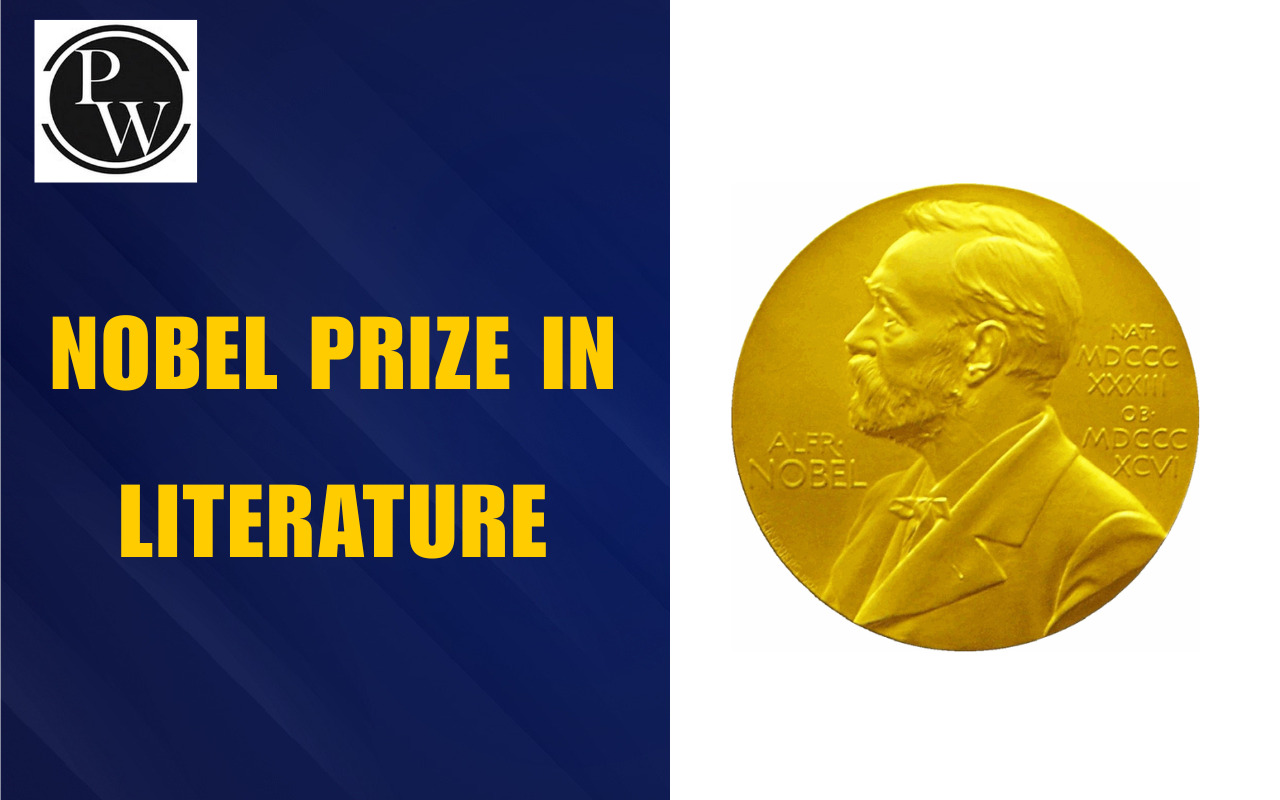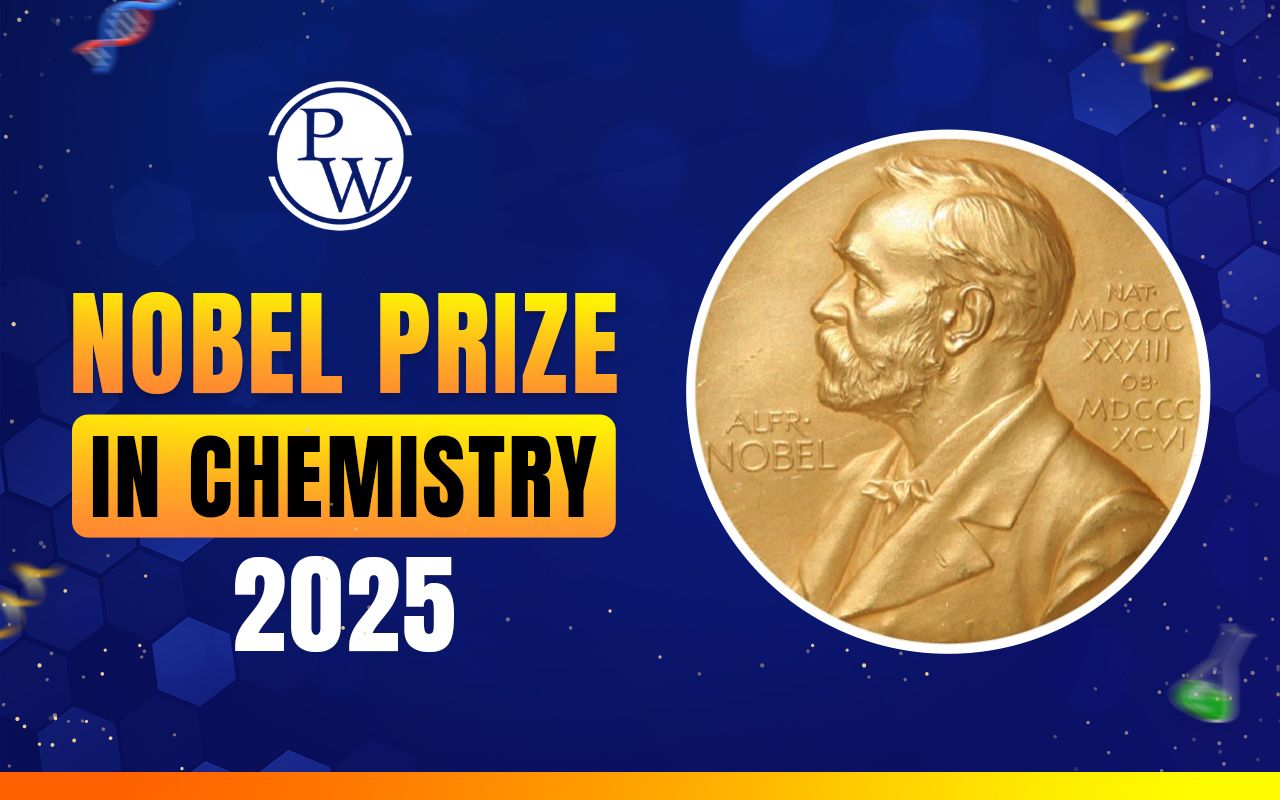
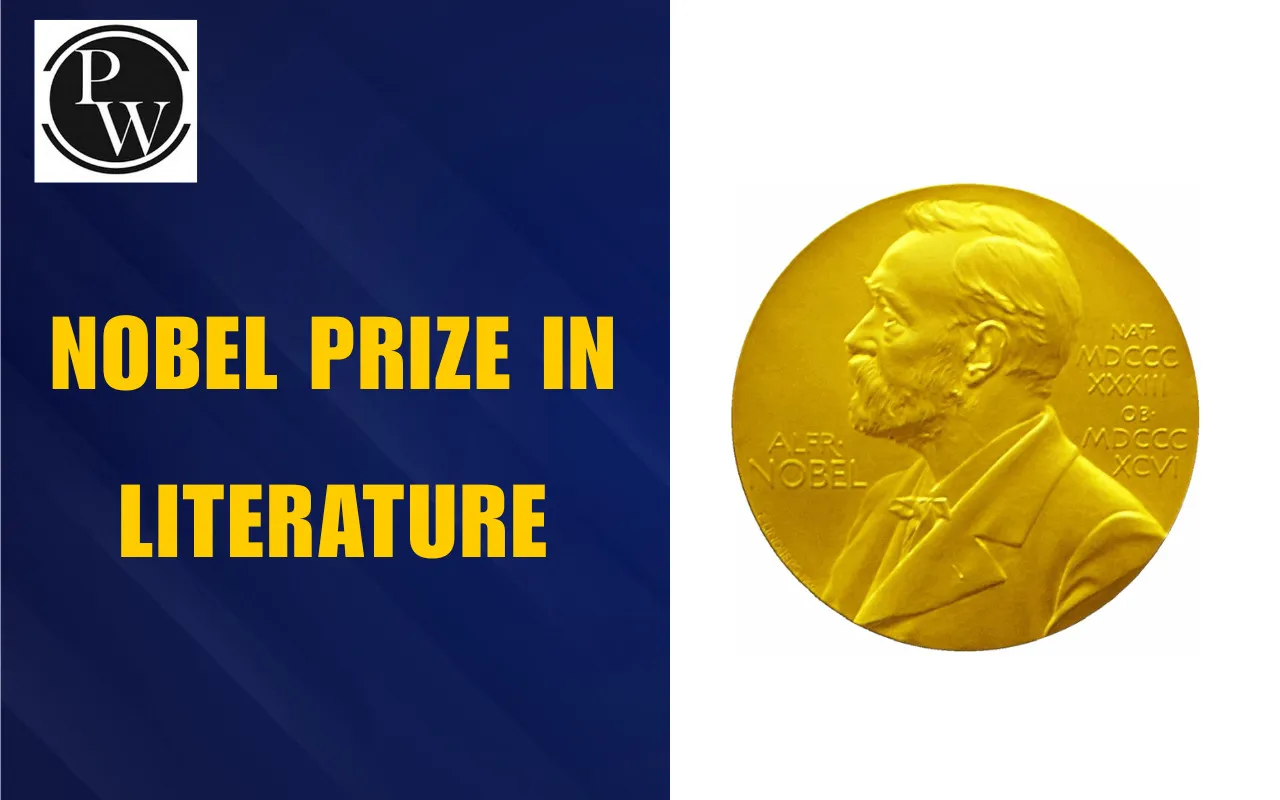
Nobel Prize in Literature 2025: The Nobel Prize in Literature 2025 has been awarded to Hungarian author Laszlo Krasznahorkai. Recognised as one of the leading voices in contemporary European literature, Krasznahorkai’s work blends the absurd and the profound, exploring humanity’s endurance through chaos and contemplation. The announcement, made by the Swedish Academy in Stockholm on October 9, 2025, reaffirms the global prestige of the Nobel Prize as literature’s highest honor.
Nobel Prize in Literature 2025 Winner
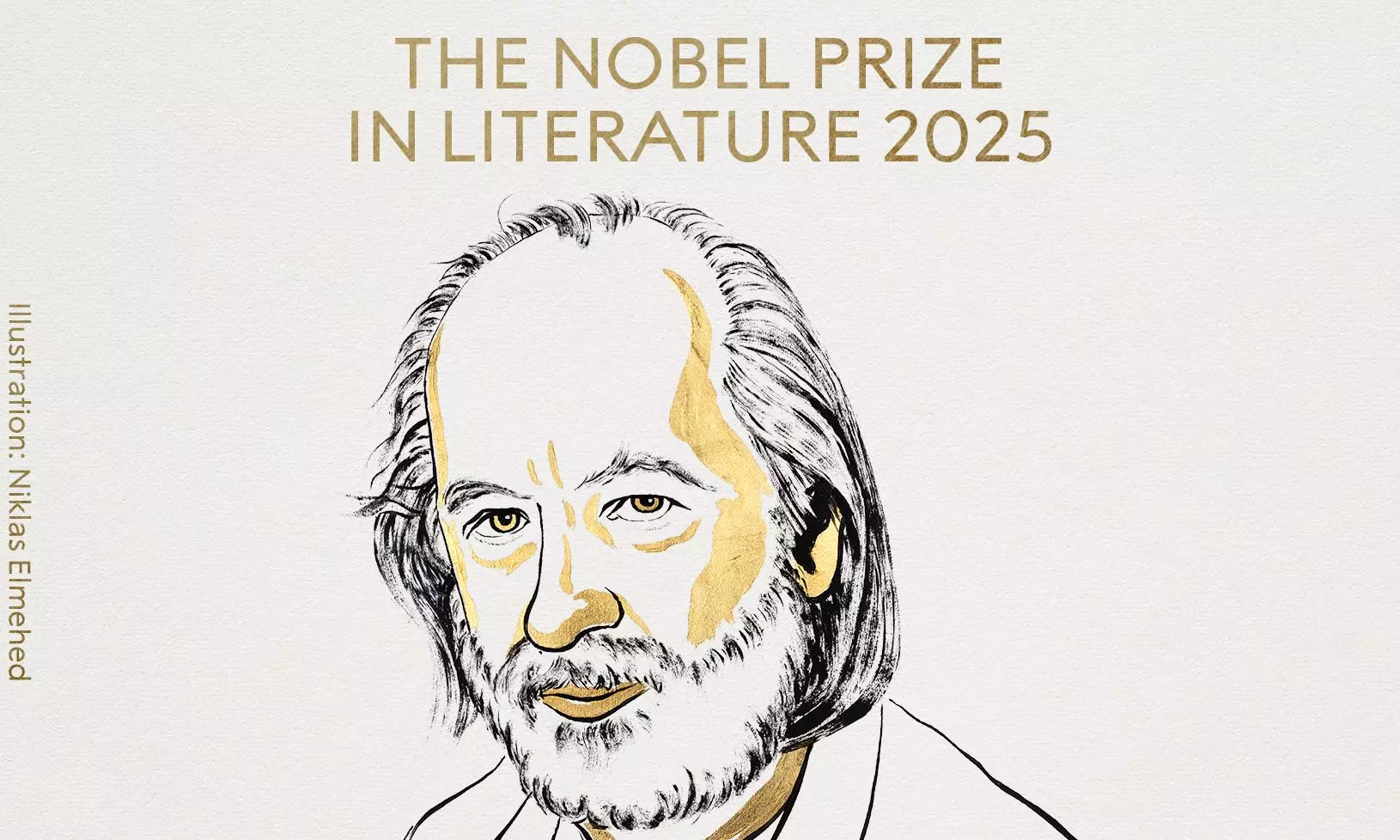
Source - nobelprize.org
László Krasznahorkai, born in 1954 in Gyula, Hungary, is a celebrated novelist known for his dense, poetic, and apocalyptic prose. His works often explore chaos, decay, and the human search for meaning in bleak settings. He rose to prominence with his debut novel Sátántangó, followed by The Melancholy of Resistance and Baron Wenckheim’s Homecoming. Many of his books have been adapted into acclaimed films through his collaboration with director Béla Tarr.
Winner of the 2015 Man Booker International Prize and several other honors, Krasznahorkai is awarded the 2025 Nobel Prize in Literature for his “compelling and visionary oeuvre that reaffirms the power of art amid despair.”
The prize, historically one of the six original Nobels, honors a writer who has produced "the best work in the best direction." It is one of the most prestigious that literary scribes can bestow, sometimes transforming an author's global reputation and celebrity status.
Laureates receive a gold medal, a diploma, and an 11 million Swedish kronor prize amount (around Rs 8.5 crore).The prize recognizes not just literary merit but linguistic and multicultural diversity, the focus of recent times.
Last Five Nobel Prize Winners in Literature
Recent winners who swept the world literary debate:
2024
Han Kang (South Korea): "for her powerful poetic writing which engages with the traumas of history and reveals the vulnerability of human existence."
2023
Jon Fosse (Norway): Honoured "for his own distinctive plays and fiction which make the unthinkable speakable."
2022
Annie Ernaux (France): Honoured "for the fearlessness and clinical precision with which she uncovers the traces, alienations and social links of personal memory."
2021
Abdulrazak Gurnah (Tanzania): Honoured "for his uncompromising and compassionate exploration of the aftermath of colonialism and the destiny of the refugee."
2020
Louise Glück (America): Honored "for her uncompromising and visionary poems that open new avenues for readers and extend the possibilities of poetry."
Collectively, all these winners represent diversity in literature today — from Glück's poetic realism to Han Kang's vision of history.
India and Nobel Prize in Literature
There has only been a single India Literature Nobel laureate: Rabindranath Tagore, who received the award in 1913. He was given the award "because of his profoundly sensitive, fresh and beautiful verse, by which, with consummate skill, he has made his poetic thought, expressed in his own English words, a part of the literature of the West."
Tagore's victory for Gitanjali opened the door to Indian and Asian writers because it was the first non-European to be awarded the Nobel Prize in Literature.
Some diaspora and Indian writers have received the highly lauded but yet-unawarded Nobel prize over the last century. Language boundaries, delays in translations, and Eurocentrism are consistently cited as explanations for the century-long drought by critics.
Where and When Will Nobel Prize in Literature 2025 Be Presented?
All of the Nobel Prizes are awarded officially on 10 December, each with a medal, diploma, and prize sum.
Peace Prize ceremony: Oslo City Hall
Other prizes: Stockholm Concert Hall
Who can forward a nomination of the 2025 Nobel Prize in Literature?
They can be forwarded by chosen professors, former laureates, scholars, MPs, or expert societies in the event of the category.
How are winners of Nobel Prize in Literature 2025 chosen?
The Swedish Academy conducts the choice in the field of Literature. Nominations and discussions are made in secret and revealed only after 50 years. For maintaining the integrity of the prize, a Nobel Prize can be given to a most up to three people in total. It is basically a well-thought-out procedure to pick the best in every field without revealing the deliberations for integrity guarantees.
Nobel Prize in Literature 2025 FAQs
What is the Nobel Prize in Literature 2025?
When will the Nobel Prize in Literature 2025 be announced?
Who is eligible to receive the Nobel Prize in Literature 2025?
How are the nominees for the Nobel Prize in Literature 2025 selected?
What do Nobel Prize laureates receive?

